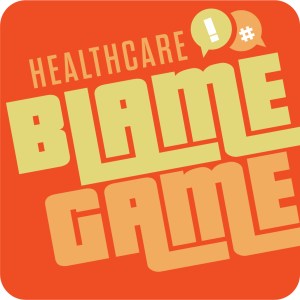Healthcare Blame Game: Why CFOs should build media relationships

While many healthcare executives are used to – and perhaps fine with – limited, controlled interactions with the media, one longtime exec says CFOs should be at the forefront of telling an organization’s financial story.
In a recent episode of HFMA’s “Healthcare Blame Game” podcast, I spoke with Jim Heffernan, a retired CFO and current CFO emeritus of Massachusetts General Physicians Organization. Here are four good pieces of advice I extracted from that conversation:
1. Be proactive. Don’t wait for reporters to call you. When you see opportunities to educate them about trends or issues in today’s headlines, take charge. Topics like price transparency and surprise billing, for example, are excellent opportunities to discuss the mechanics, federal regulations and how you’re working to exceed those minimum expectations.
Heffernan told a story about when a physician in his health system was investigated for “a billing issue,” which federal prosecutors ultimately decided not to prosecute. A local reporter wouldn’t let it go, but because of the relationship Heffernan and his team had cultivated, they were able to have a conversation about what had occurred and get past it. “We were able to convince her that, yes, the federal prosecutor had gone through all of these issues and there really wasn’t anything that was being hidden,” he said.
2. Invite everyone to the table. Hospitals are woven into every aspect of a community. Heffernan and a hospital CFO once met with several members of a local media outlet’s reporting staff, which they believed positively affected coverage of the hospital’s activities for several months to come.
“Both the CFO and I could look back at articles that got written over the next year where there was more detail in the discussion, there was more of an explanation of what might be going on,” he said. “And a few times they called either me or the hospital CFO for an article they were working.”
3. Understand what a reporter is looking for. Many concepts in healthcare can be difficult to explain in limited time. If a reporter is on deadline and looking for a simple quote, the conversation is not the time to attempt such an explanation but can serve as an opportunity to invite a deeper conversation.
“Often, [reporters] are just looking for something to finish out an article that they’ve got a deadline against,” Heffernan said. “You can sense at times when they’re willing to listen to a more complex story and other times when, ‘I just need a quote today.’”
4. Tie clinical wins to finance. Positive patient outcomes often occur because of costly technology and treatments. “I think the stories that come out where there’s a particularly good result on a patient … somehow have to be connected to the cost of care,” Heffernan said. “There are great results … as a result of expensive technologies.”
Brad Dennison is a 25-year veteran of the newspaper industry. He served 15 years as the top news executive for multiple national organizations and led thousands of journalists across the U.S., including investigative teams. He’s also a past board member of the Associated Press Media Editors, where he was elected national chair. Dennison joined HFMA as chief content executive in 2019.
Do you have comments on this blog or ideas for future blogs? Contact HFMA Chief Content Executive Brad Dennison at [email protected]. To support the editorial work we’re doing, please consider an HFMA membership.





